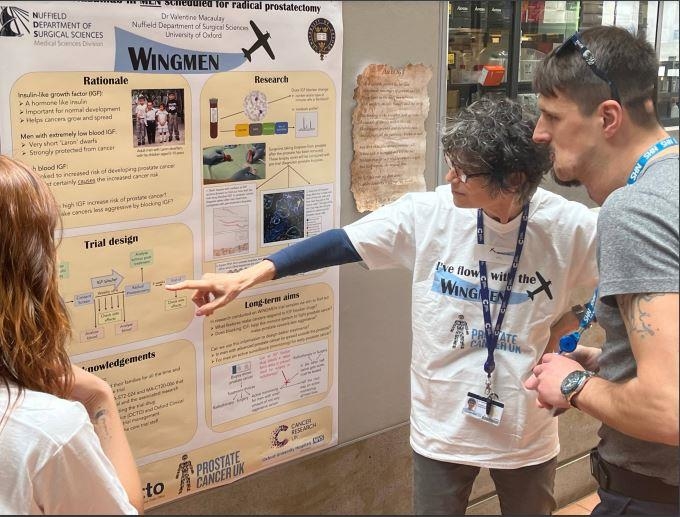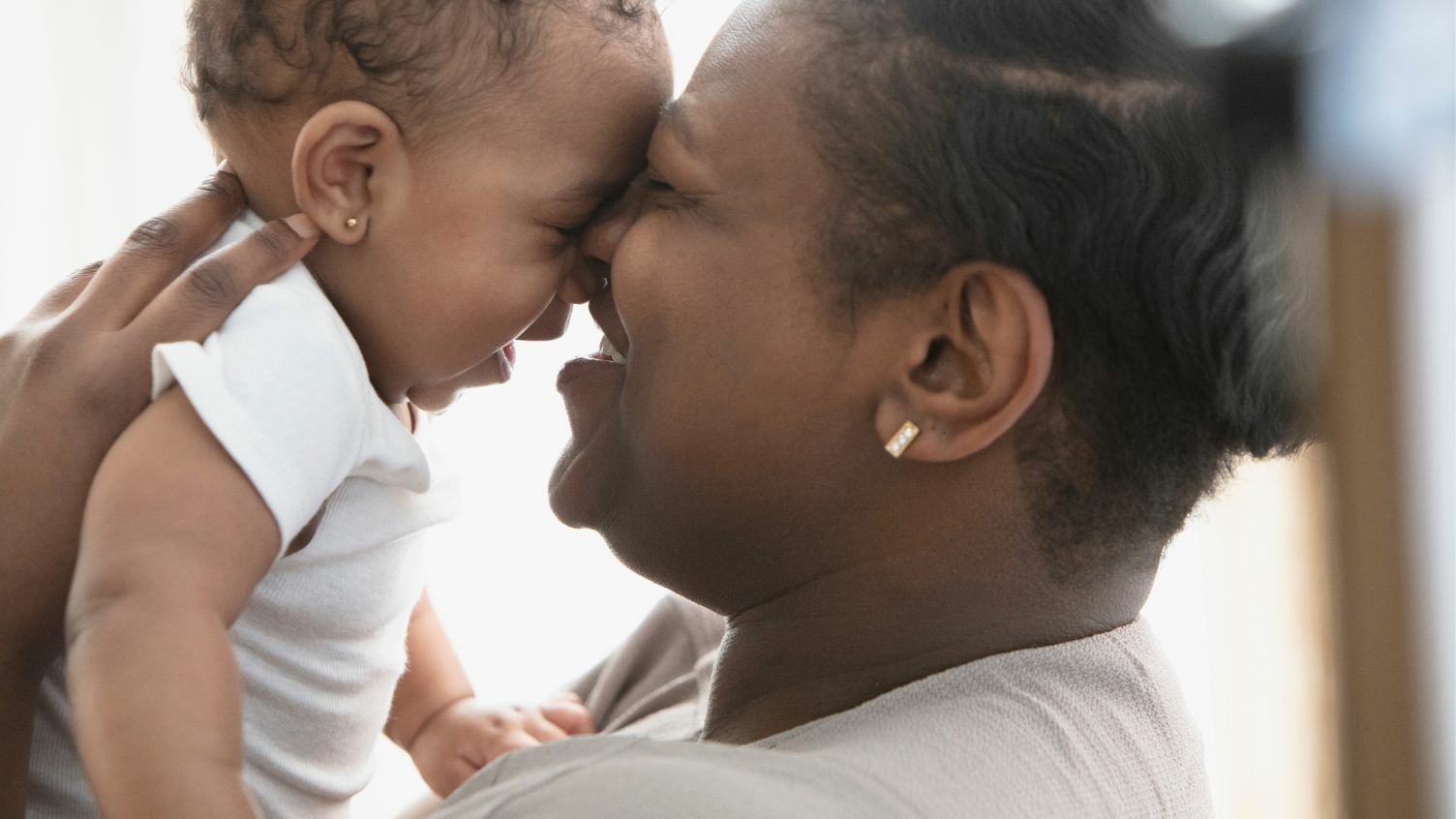Men’s Health Week: prostate cancer research in Oxford
- 15 June 2023
- 3 min read
Dr Valentine Macaulay is Emeritus Associate Professor and Honorary Consultant in Medical Oncology at the Nuffield Department of Surgical Sciences (NDSS), University of Oxford.
Valentine is research lead of the WINGMEN study into a hormone blocker drug to reduce tumour growth in patients with prostate cancer.
To mark Men’s Health Week which runs from Monday 12 June to Sunday 18 June, Valentine discusses prostate cancer research conducted in partnership between the NDSS and Oxford University Hospitals NHS Foundation Trust.
Talk to your healthcare professional about taking part in research or search for studies seeking volunteers and sign up to be contacted about studies at Be Part of Research.
“Our goal is to find more effective ways of diagnosing and treating men with localised prostate cancer and give men the chance to take part in research. As a first step, men suspected of having prostate cancer need to have a prostate biopsy. This involves taking small prostate samples under local anaesthetic, either via a probe inserted into the rectum or through the skin.
“These two methods are being compared in the TRANSLATE trial, led by Associate Professor of Urology Richard Bryant and Dr Alastair Lamb, Cancer Research UK Clinician Scientist at the NDSS. The aim is to find out which method is best at detecting prostate cancer while causing less discomfort and fewer complications.
“If localised prostate cancer is confirmed, treatment options for participants include prostate surgery to remove the tumour or radiotherapy. Men with small cancers may be offered monitoring, but in about a third of these cases the cancer gets worse and they need surgery or radiotherapy.
“We’re running two trials in Oxford for men who need prostate surgery. In the ProMOTE study, led by Dr Alastair Lamb, participants have an injection of a fluorescent drug before surgery. During the operation, the drug helps surgeons detect and remove any glowing spots of cancer that have been left behind or have spread. This may improve the chances of removing the cancer completely and avoid unnecessarily removing healthy tissue.
“The second pre-surgery trial, WINGMEN, arose from my interest in understanding how high levels of a hormone called insulin-like growth factor (IGF) increase the risk of prostate cancer. Men having surgery usually wait 4 to 6 weeks before their operation. During this time participants were offered treatment with an IGF blocker drug and blood and tissue samples were collected before and after treatment.
“If we find the treatment made their cancers less aggressive, we want to test whether blocking IGF for months or years, using a blocker tablet or modified diet, reduces the need for surgery or radiotherapy in men who are having their cancer monitored.
“Our 27 participants were very keen to know how we’ll use their samples. In May we invited them, their families and friends for ‘WINGMEN Day’, an information session to thank them for supporting the trial and to explain more about the research.

(Pictured: Dr Valentine Macaulay and Martin Pirkl, Surgical Research Coordinator at the NDSS, during the WINGMEN information day.)
“During the information day, they were given the opportunity to discuss the research and they came up with excellent questions and suggestions to help design future trials.
“All of these trials involve close cooperation between doctors, surgeons, research nurses, pharmacists, scientists and most importantly the patients. We're inspired by our WINGMEN participants - they've made excellent suggestions for future trials.”
The TRANSLATE trial is funded by the NIHR.
The ProMOTE study is funded by Cancer Research UK and is supported by the NIHR.
The WINGMEN study is funded by Prostate Research UK and is supported by the NIHR.
Talk to your healthcare professional about taking part in research or search for studies seeking volunteers and sign up to be contacted about studies at Be Part of Research.


